<>Blanc-Labo S.A. your laboratory equipment specialist
Spray dryers
Blanc Labo offers a complete range of spray drying solutions from the Pilotech brand, specializing in pilot and laboratory dryers. With over 20 years of expertise, Pilotech designs innovative, reliable equipment that is perfectly suited to the needs of modern laboratories, research centers and processing industries.
The Pilotech Spray Dryers offered by Blanc Labo are high-performance spray drying solutions, designed for laboratories and industries requiring precise and homogeneous drying. Thanks to their compact, quiet and versatile design, these devices can process a wide variety of materials, including heat-sensitive substances. The range includes models suitable for different production scales, from the YC-015 Mini Spray Dryer for small quantities to the YC-019 Pilot Spray Dryer, capable of processing up to 4 liters per hour. These devices offer precise control of drying parameters, ensuring reliable results and maximum material recovery.
Used in the pharmaceutical, food, chemical, and ceramic industries, Pilotech Spray Dryers are made of stainless steel to ensure durability and performance in the most demanding environments. To learn more about the options available and discuss your specific needs, the Blanc Labo team is at your disposal.
Share
The range
| Model | drying capacity (L/h) | Technical sheet | Price | Cart |
|---|---|---|---|---|
| YC 015 - Spray dryer for laboratory | 2 |
|
|
|
| YC 015a - Spray dryer for organic solvents | 1.5 |
|
|
|
| YC 018 - Pilote Spray dryer | 5 |
|
|
|
| YC 018a - Pilote Spray dryer for organics solvents | 3.5 |
|
|
|
| YC 029 - Pilote Spray dryer | 10 |
|
|
|
| YC 1800- Spray dryer Low Temperature ( 105°...200°) | 2 |
|
|
|
| YC 2000- Spray dryer under vaccum | 1.5 |
|
|
|
| YC 3000- Spray dryer + freezer (-30°C) | 1.5 |
|
|
|
| YC 01- Spray freezing granulator (-80°C) | 1.2 |
|
|
|
YC 015 - Spray dryer for laboratory
drying capacity (L/h)
Technical sheet
YC 015a - Spray dryer for organic solvents
drying capacity (L/h)
Technical sheet
YC 018 - Pilote Spray dryer
drying capacity (L/h)
Technical sheet
YC 018a - Pilote Spray dryer for organics solvents
drying capacity (L/h)
Technical sheet
YC 029 - Pilote Spray dryer
drying capacity (L/h)
Technical sheet
YC 1800- Spray dryer Low Temperature ( 105°...200°)
drying capacity (L/h)
Technical sheet
YC 2000- Spray dryer under vaccum
drying capacity (L/h)
Technical sheet
YC 3000- Spray dryer + freezer (-30°C)
drying capacity (L/h)
Technical sheet
YC 01- Spray freezing granulator (-80°C)
drying capacity (L/h)
Technical sheet
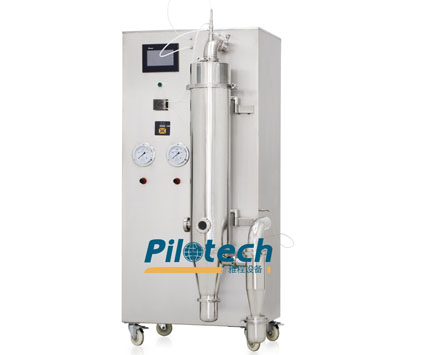
Wide range: from 0.5 to 100L per hour
Very precise control of process parameters
Compact and mobile
Easy to use
Flexible: aqueous solutions, suspensions, emulsions, etc...
Compliant with European standards
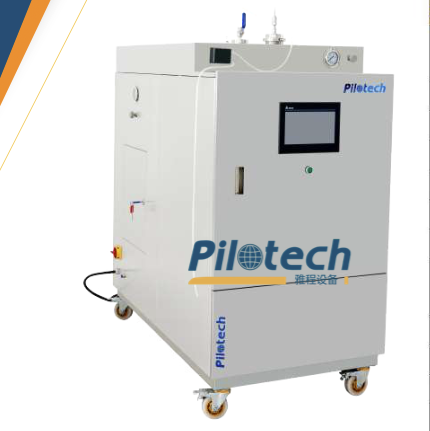
YC01 - Spray Freeze Granulator 1.5L/h
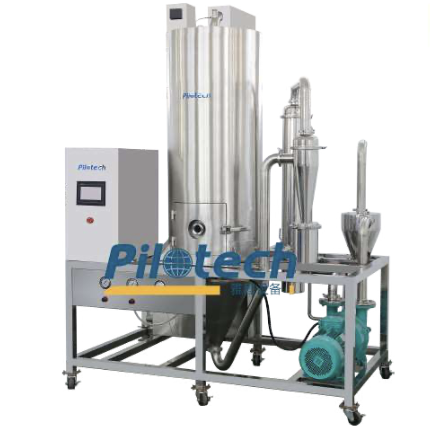
YC3000- Vaccum spray dryer 10L/h
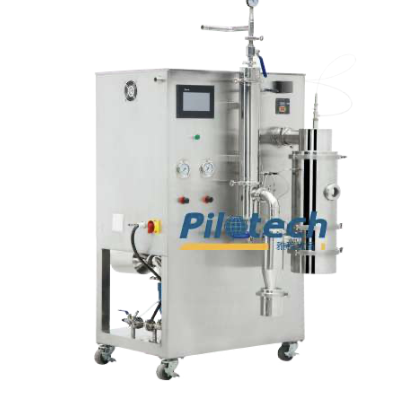
YC2100- vaccum Spray dryer 3L/h
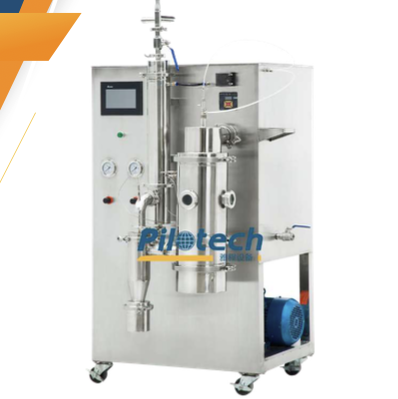
YC2000- Vaccum Spray Dryer 1.5L/h
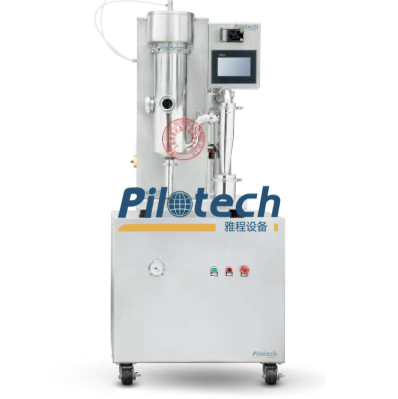
YC510 - Vaccum Spray Dryer 0.5L/h
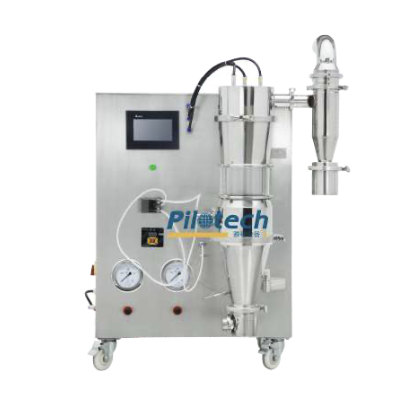
YC1800- Low temperature freeze dryerr
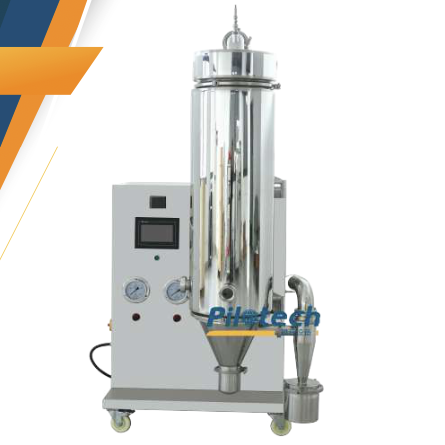
YC019- Pilot spray dryer 5L/h
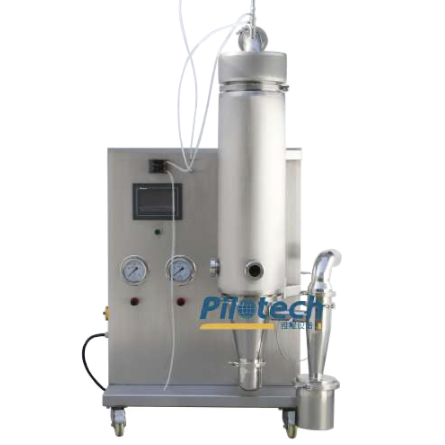
YC018- Lab spray dryer 3L/h
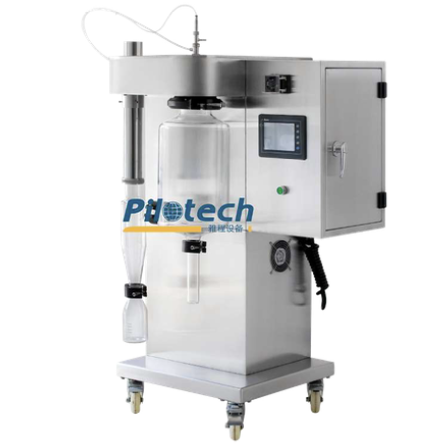
YC015- Lab Spray Dryer 1.5L/h
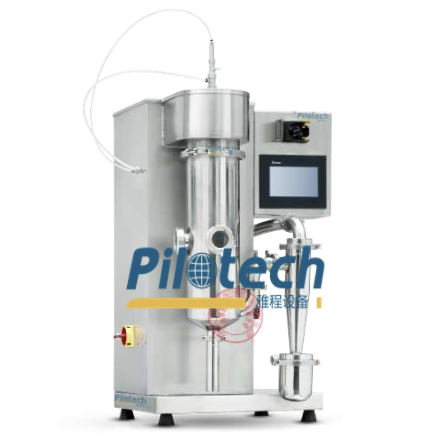
YC500- Bench top spray dryer 0.5L/h
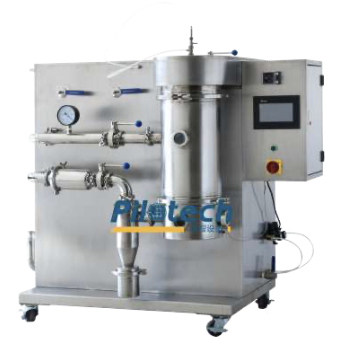
YC3000- Spray Freezing Dryer 1L/batch
Pharmaceutical industry: For the production of fine powders, microencapsulation of drugs, and formulation of pharmaceutical products.
Food industry: For the manufacture of food powders (milk powder, instant coffee, flavors, nutritional supplements).
Chemical industry: For the production of powdered chemicals, catalysts, pigments, and other substances.
Cosmetic industry: For the creation of cosmetic powders, microencapsulation of active ingredients, and personal care products.
Flavor and fragrance industry: To encapsulate flavors and essential oils, extending their shelf life and facilitating their use.
Materials industry: To produce ceramic powders, battery materials, and other advanced composites.
Research laboratories: For the development of new formulations and research on drying processes.
Agrochemical sector: For the production of pesticides, herbicides, and other agrochemical products in powder form.
Paint and coatings industry: For the production of pigments and other powdered materials used in paints.
Biotechnology industry: For the drying of microorganisms, enzymes, or other biomaterials for use in research or production.
How much material do you plan to dry in each session?
For small quantities, a model like the YC-500 (benchtop) or the YC-015 may be suitable. For larger volumes, a pilot model like the YC-018 would be more appropriate.
Are your materials heat sensitive or do they require low temperature drying?
If so, a low temperature dryer like the YC-1800 or a vacuum dryer like the YC-2000 may be required.
Do you work with organic solvents or potentially flammable/toxic materials?
For organic solvents, the YC-015A or the YC-501, which uses an inert loop, would be recommended for safety reasons.
Do your materials require maximum retention of their properties (e.g. enzymes, probiotics)?
If so, a vacuum dryer like the YC-2000 or a combined spray and freeze dryer like the YC-3000 might be the ideal option.
Do you prefer a versatile unit that can handle different types of drying?
A multifunctional model like the YC-510, which can be used as a traditional, vacuum, or organic solvent dryer, might meet your needs.
How much space is available in your lab to install the machine?
If space is limited, a compact model like the YC-500 (benchtop) would be preferable. For larger capacities while maintaining a smaller size, the YC-018 is an option.
Do you need to granulate your materials in addition to drying them?
The YC-1000, which combines spray drying and granulation, would be suitable if you have granulation needs.
What is the nature of your testing or production: laboratory, pilot, or industrial scale?
For lab tests, models like the YC-015 or YC-500 will suffice. For pilot scale tests, the YC-018 would be more suitable.
9. Do you need maximum powder recovery after drying?
The YC-018 is designed to provide a high powder recovery rate (up to 92%), which could be crucial for some types of expensive or rare materials.
Does your project require rapid drying compared to traditional freeze drying?
If so, the YC-3000, which combines spray drying and freezing, can provide a faster drying process while maintaining material properties.
The choice of the most suitable drying method for a sensitive product depends on several factors, including the intrinsic properties of the product (thermosensitivity, oxidability, hygroscopy), the desired final quality (aroma, texture, biological activity) and industrial constraints (cost, flow rate).
When to choose which method?
Freeze-drying:
Advantages: Ideal for products that are very sensitive to heat and oxidation, allows the initial properties of the product to be preserved as much as possible.
Disadvantages: High cost, long drying time, requires specific equipment.
Applications: Pharmaceutical products (vaccines, antibiotics), high-end foods (instant coffee, freeze-dried fruits and vegetables), cell cultures.
Spray drying:
Advantages: Fast and continuous process, allows fine and homogeneous powders to be obtained.
Disadvantages: Can degrade certain molecules that are sensitive to heat, risk of oxidation.
Applications: Milk powder, flavors, fruit juices, chemicals.
Vacuum drying:
Advantages: Moderate drying temperature, reduces oxidation.
Disadvantages: Longer drying time than spray drying, requires specific equipment.
Applications: Thermolabile products, sensitive to oxidation, pharmaceutical products.
Selection criteria:
Nature of the product: Thermosensitivity, oxidizability, hygroscopy.
Desired final quality: Aroma, texture, biological activity.
Production rate: Spray drying is more suitable for large volumes.
Cost: Freeze-drying is generally more expensive.
Regulatory constraints: Some industries (pharmaceutical, food) have specific regulations.
Contact us: we will help you choose.
